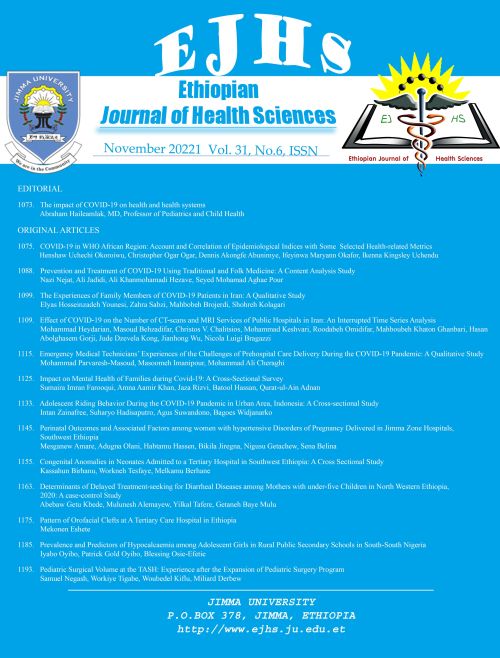Main Article Content
Molecular Evaluation of Chlamydia trachomatis Infection and Its Association with Tumor Necrosis Factor-α Polymorphism in Recurrent Spontaneous Abortions
Abstract
BACKGROUND፡ The rate of infections in the intensive care units (ICUs) is rising, mainly because of the increasing use of invasive procedures. Several bacterial infections and host genetic backgrounds, including TNFα SNP polymorphisms, play important roles in recurrent spontaneous abortions (RSA). So, this study aimed to evaluate C. trachomatis infection and its relation with TNFα -308 and -238 polymorphism for early detection and treatment of RSA.
METHODS: The blood samples were taken from 63 Iranian women with a history of RSA and 59 ethnically matched healthy controls with at least two successful pregnancies and no history of abortion. Then, DNA was extracted from all samples and detection of C. trachomatis and TNFα -308 and -238 polymorphism was determined by multiplex amplificationrefractory mutation system (ARMS)-PCR. Finally, the statistical analysis to detection C. trachomatis and host genetic roles in RSA were analyzed by Epi Info TM software by X2 test.
RESULTS: C. trachomatis was detected in 22 and 3% of the RSA and the control group, respectively. Moreover, in comparison with healthy controls, C. trachomatis infection was closely correlated with TNFα -308 genotypes, whereas no significant association was observed between TNFα -238G/A and RSA. In addition, statistical analysis of TNFα -308 genotypes showed that the frequency of genotype AA was higher in patients with C.trachomatis infections than healthy individuals and the difference was statistically significant.
CONCLUSIONS: This study demonstrated that molecular analysis of TNF -308 genotypes is important in early detection and treatment of RSA with C. trachomatis infection.





